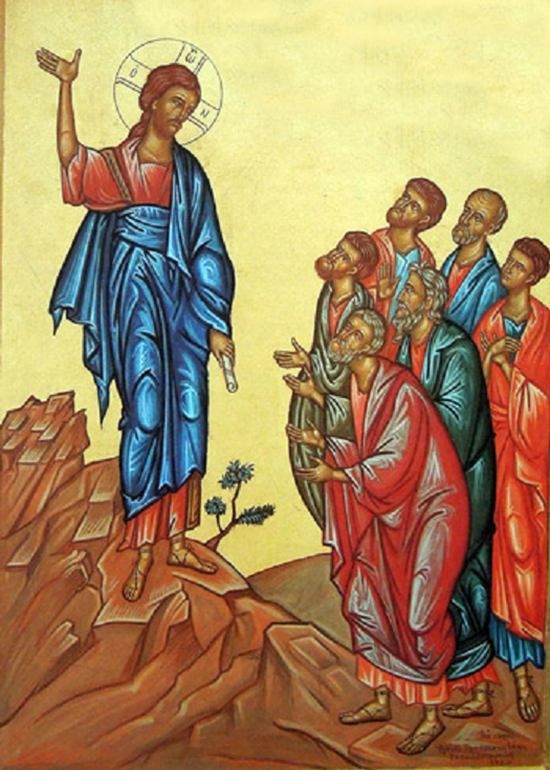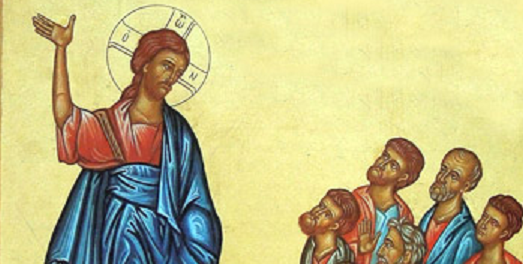Love in Humble Service
Twenty-Ninth Sunday Scripture Readings

It’s such a shame that, over time, Christianity became as popular as it did. Once the following of Jesus of Nazareth became entrenched in the Roman Empire, Christians began to envision Christianity transforming the world. What actually happened was that the world transformed Christianity. Jesus never intended that Christianity should transform the world … it was intended to transform the Christian. Whenever Christianity adopts the world’s methods, it betrays its mission. The principles by which the world operates are like a three-legged stool. Taken together, wealth, power, and prestige define “success” in secular life.
To appreciate how fundamental these three factors are in worldly affairs, all we have to do is look at the plight of those who are excluded from them. Start with the most obvious. Look at those who lack wealth—the poor. These are they who are in survival mode. They lack many, if not most, of the necessities of life: food, clothing, shelter, and basic healthcare. These are they who have difficulty contributing materially to society. Therefore, they’re disvalued and considered by others to be exploitable and expendable. They’re without prestige. As such, they’re powerless to influence the socio-economic and political forces that dominate and control their lives. They are those whom the world considers failures. For one of these poor, disenfranchised to effect any change in their condition, they must be extraordinary people who do extraordinary things and, sadly, they must also be extraordinarily fortunate.
Early Christianity as a movement faced similar challenges. Using secular means, through extraordinary leaders, extraordinary efforts, and some extraordinary events, Christianity gained prestige in the eyes of the movers and shakers—the influencers of their day—the wealthy and politically powerful. Once Christianity gained a modicum of success and value in the eyes of the world, it produced prodigious results. Consolidation of power and influence was almost inevitable. Once it had achieved a level of prestige, power, and influence, wealth was a natural byproduct. In its determination to transform the world, Christianity, by using the world’s means, could not avoid being corrupted by them.
Today’s gospel contains Jesus’s image of what he would call a disciple—one of his followers. James and John came to him practically demanding prestige. They had in their minds the image of the eschatological Son of Man who, when he had entered into his glory, would appear seated on his throne, judging the living and the dead. He had already promised the Twelve that they would judge the twelve tribes of Israel, but that wasn’t enough for James and John. They wanted the places of honor by his side. With those places of honor—of prestige—came the promise of power and authority in the Kingdom of God.
Jesus agreed to grant their prayer, but, of course, they didn’t understand what they were asking. When Jesus asked them if they could drink the cup of woe that he would drink and be drowned in the sorrows into which he would descend, they readily agreed. They assumed that the trials would be the price they would have to pay to gain the prestige they sought. Those things, however, weren’t the price of their request, instead, they were the answer to it. Prestige for the follower of Jesus—for the Christian—is found only in humility. That’s not to say humiliation, but rather, unconditional acceptance of who we are and where we are right here and now. It’s living life on life’s terms. It’s acknowledging that the only path leading to the resurrection passes through the cross.
The corollary to that acceptance of things as they are is the embrace of ultimate powerlessness. The power of the Church doesn’t lie in the organization itself. It doesn’t lie in numbers. It doesn’t lie in the number of people who claim the name Christian. It doesn’t lie in the number of converts baptized. It doesn’t lie in the number of parishioners or the number of parishes. It doesn’t lie in the number or size of its churches, the value of its assets, or its monetary wealth. It doesn’t lie in the percentage of a country’s population who identify as Christian. When Jesus sent his disciples out two-by-two to preach the good news of his gospel, none of that was in his mind. The power of Christ’s Church lies in the love expressed in the humble service of one person to another. That love is nothing less than an expression of the gift of the Holy Spirit. The Church only exercises the power of the Holy Spirit when its individual members are united in the redemptive mission of Christ himself.
Christians today so often fail to recognize that it’s not possible to solve the world’s problems using the methodologies that caused those problems to begin with. Even Einstein said, “You cannot solve a problem with the same mind that created it.” In fact, when Christians attempt to make a difference in the world using money, political power, and prestige, that only serves to aggravate the problems they seek to solve. The Church becomes part of the problem, and it’s so obvious that many turn away from it. That’s why movements like Christian Nationalism are such terrible aberrations. They avidly embrace the three temptations that Jesus rejected in the desert: the temptations of money, power, and prestige. They contradict, and even make a mockery of Jesus’s life and teachings.
Christians—true disciples of Jesus—need to reject those temptations. They cannot tolerate the use of wealth, power, and prestige in Jesus’s name. The mission of the Christian, and therefore of Christ’s Church, is set out plainly in today’s gospel for all those who recognize the futility of the ways of the world. For “whoever wishes to be great among you will be your servant; whoever wishes to be first among you will be the slave of all.”
Get articles from H. Les Brown delivered to your email inbox.
